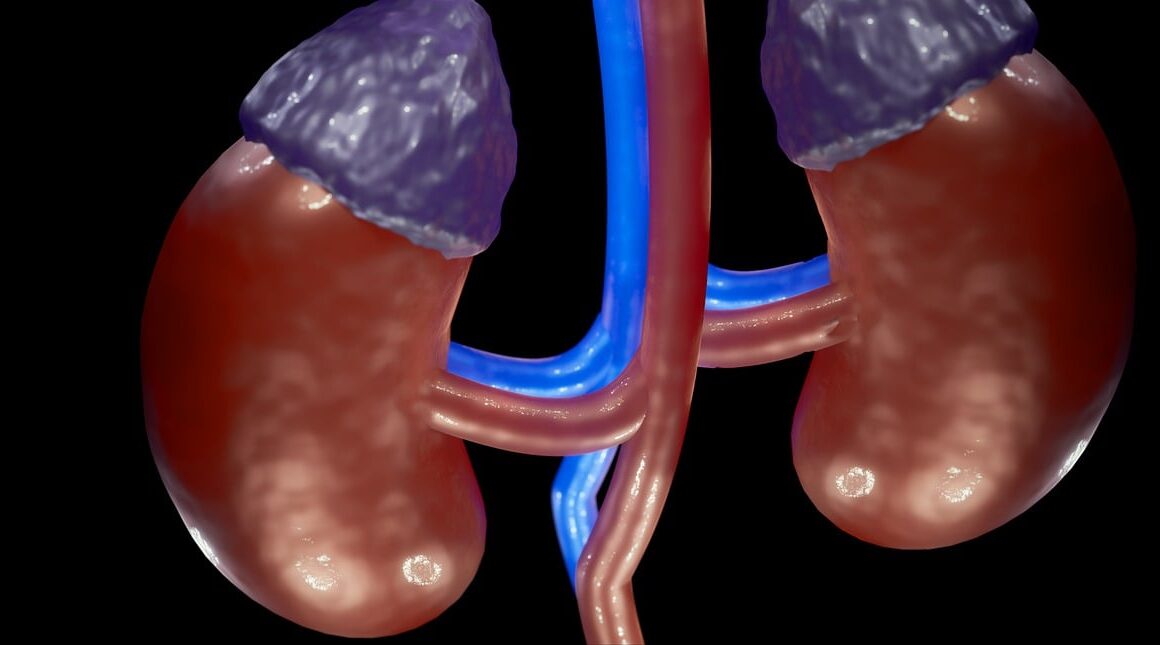Understanding the HPA Axis and Its Role in Adrenal Gland Functionality
The Hypothalamic-Pituitary-Adrenal (HPA) axis is critical for regulating various physiological processes, particularly stress response. This axis consists of three main components: the hypothalamus, the pituitary gland, and the adrenal glands. When faced with stress, the hypothalamus releases corticotropin-releasing hormone (CRH). CRH stimulates the pituitary gland to release adrenocorticotropic hormone (ACTH), which then triggers the adrenal glands to produce cortisol. This cascade is essential for maintaining homeostasis. In times of acute stress, cortisol helps mobilize energy and modulate immune responses. However, chronic activation can lead to adverse effects, including fatigue and mood disorders. It’s vital to ensure that the HPA axis functions optimally. Disruptions within this axis can lead to adrenal insufficiency, often resulting in debilitating symptoms. Managing stress through various techniques can help support adrenal health and overall well-being. Techniques such as mindfulness, exercise, and proper nutrition are beneficial. Awareness of stressors and learning how to manage them is crucial for maintaining a balanced HPA axis and healthy adrenal functionality. Overall, understanding this complex hormonal interaction is key to supporting hormonal health, especially through proper lifestyle choices.
The adrenal glands play a pivotal role in the body’s stress response and overall hormonal balance. They produce essential hormones, including cortisol, adrenaline, and aldosterone. Cortisol, known as the ‘stress hormone,’ is critical for regulating metabolism, immune responses, and blood pressure. Adrenaline, on the other hand, is responsible for the ‘fight or flight’ response, rapidly preparing the body to face perceived threats. Aldosterone helps maintain fluid balance and blood pressure by regulating sodium and potassium levels in the body. The interplay of these hormones is essential for responding to stress effectively. Chronic stress can lead to a condition known as adrenal fatigue, where the glands can no longer cope with prolonged stress, resulting in insufficient hormone production. Symptoms of adrenal fatigue can include chronic tiredness, sleep disturbances, and mood swings. Addressing adrenal health is crucial for improving overall wellness. Regular health check-ups and understanding how stress impacts the body is vital. Empowering oneself with knowledge about adrenal functionality can lead to better management of one’s health. Recognizing symptoms and seeking appropriate guidance helps restore hormonal balance and optimizes adrenal functions.
Understanding the influence of lifestyle factors on adrenal health is crucial. Stress management is primarily about maintaining balance. Regular physical activity can greatly enhance adrenal functionality by promoting blood flow and reducing stress levels. Engaging in aerobic activities, such as walking, running, or swimming, can boost cortisol regulation. Furthermore, incorporating strength training can enhance overall hormonal balance. Nutrition also plays an essential role in supporting adrenal function. Consuming a balanced diet rich in whole foods, healthy fats, and lean proteins can provide the necessary nutrients for the adrenal glands. Specific vitamins and minerals, such as Vitamin C and magnesium, are particularly important for healthy adrenal function. Staying hydrated is equally important, as dehydration can exacerbate stress responses. Reducing caffeine intake and avoiding processed foods can also benefit adrenal health. Engaging in relaxation practices, such as yoga or meditation, can aid in reducing chronic stress, which is crucial for maintaining adrenal health. Sleep hygiene plays a significant role as well, as adequate rest allows the body to recover and rejuvenate. Optimizing these lifestyle factors can significantly impact adrenal health and overall hormonal balance.
The Role of Stress in Adrenal Functionality
Stress is a pivotal factor in determining the functionality of the adrenal glands. When the body perceives stress, whether physical or emotional, the HPA axis activates to help cope. This response can manifest through increased cortisol production. While short bouts of stress can be beneficial, chronic stress presents significant health risks. Ongoing stress can lead to consistently elevated cortisol levels which compromise the immune system, disrupt sleep, and adversely affect mood. Over time, sustained adrenal stimulation may result in adrenal exhaustion where the glands cannot produce adequate hormones anymore. Symptoms such as anxiety, fatigue, and hormonal imbalances can arise from this state. Recognizing various stressors is imperative to mitigate their effects. Developing coping strategies, such as time management, deep breathing exercises, or engaging in enjoyable activities, can help reduce overall stress levels. Creating a supportive environment contributes to emotional well-being and enhances adrenal health. Practical approaches like establishing boundaries and prioritizing self-care can foster resilience against stress. Fundamentally, managing stress effectively is central to preserving adrenal functionality and maintaining overall hormonal health.
The relationship between adrenal health and mental well-being is increasingly recognized. The adrenal glands are not only pivotal for physical stress responses but also play a role in emotional regulation. Problems with adrenal function can lead to psychological symptoms, including anxiety and depression. Cortisol has effects on brain regions involved in mood regulation, making fluctuations in its levels impactful on mental health. Research suggests that chronic stress and mismanaged HPA axis functioning may contribute to conditions like depression and anxiety disorders. Therefore, improving adrenal health can be a crucial element in mental health management. Interventions aimed at balancing cortisol levels may improve mood and emotional stability. Engaging in regular physical activity can help moderate cortisol levels and improve overall well-being. Dietary adjustments, like incorporating adaptogenic herbs, can support adrenal recovery and hormone balance. Additionally, practicing mindfulness and stress reduction techniques can be beneficial for both adrenal health and emotional wellness. Formulating a holistic approach that encompasses physical, emotional, and dietary factors is essential for effective adrenal support. Better adrenal health may lead to enhanced mental clarity and emotional resilience.
Monitoring and testing adrenal health can give insights into overall hormonal functionality. Various tests can assess adrenal hormone levels, and one common method is the saliva cortisol test. This test measures cortisol at different times throughout the day, providing information on circadian rhythm and whether cortisol production is balanced. Additionally, blood tests can evaluate levels of ACTH and other hormones affecting the adrenal glands. Understanding normal ranges is crucial for identifying dysfunction. Comprehensive assessments may also include evaluating symptoms and lifestyle factors contributing to adrenal issues. However, not all hormone imbalances necessitate medical intervention. Adopting lifestyle changes often beneficially impacts adrenal health. Regular check-ups with a healthcare provider can guide health decisions regarding adrenal management effectively. Keeping track of symptoms allows for better understandings of patterns and potential changes in health status. A proactive approach, combining medical advice and personal well-being strategies, can optimize adrenal functionality. Staying informed on advances in adrenal health and hormonal functionality will empower individuals to actively support and maintain optimal health. Always consult healthcare professionals for pertinent medical advice tailored to personal health needs.
Conclusion and Taking Action for Adrenal Health
Focusing on adrenal health is essential for achieving overall hormonal balance and well-being. Understanding the HPA axis and its intricate functions enables individuals to grasp the significant impacts of stress on adrenal function. Through informed lifestyle choices, including balanced nutrition, regular exercise, and effective stress management techniques, one can aid in maintaining optimal adrenal functionality. Awareness of symptoms related to adrenal dysfunction encourages proactive health measures. Empowering oneself with knowledge about how the adrenal glands operate and identifying personal stressors can lead to improved hormonal health outcomes. Making time for relaxation and prioritizing self-care practices can facilitate recovery from stress and lower cortisol levels. Collaborating with healthcare providers helps monitor adrenal health and assists in determining appropriate interventions if needed. Finally, taking actionable steps toward improving overall health can significantly impact productivity and quality of life. Enhanced adrenal health can lead to better energy levels, emotional stability, and overall resilience. Committing to these health practices is integral in safeguarding hormonal well-being for the long term.
Ultimately, understanding the connection between the HPA axis and adrenal functionality contributes to achieving better health. Individual commitment to prioritizing health and wellness is vital for maintaining hormonal stability and managing stress effectively. Achieving this balance is a continuous process that requires monitoring and adapting strategies to individual needs. Early identification of issues and consistent effort can significantly promote health and resilience against stressors. Integrating these insights into daily routines fosters a healthier lifestyle that supports the adrenal glands. By prioritizing adrenal health, one can ensure a higher quality of life and enhanced well-being.


